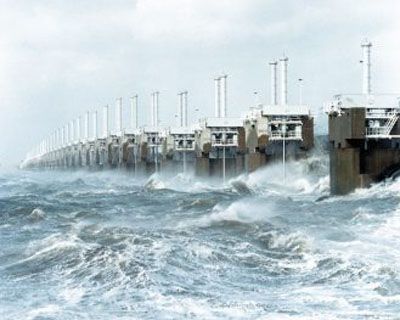The presentations, given by the keynote speakers can be found here:
Deltaic regions are among the areas most vulnerable to climate change and sea-level rise. Their characteristics of high population densities and high economic value justify serious attention to the impacts of these processes. The 2009 MARE Policy Day is about the multiple ways in which deltaic regions in Europe and developing countries deal with the uncertainties of sea-level rise caused by climate change. Taking the report of the New Delta Commission in the Netherlands as a point of departure, the objective is to critically appraise emerging policies for climate adaptation of deltaic regions, both in developed and developing countries. The Policy Day aims to stimulate reflection and critical interaction between the worlds of science and policy. Rather than providing readymade ‘solutions’, it strives to identify important themes for policy attention and further research.
Questions that will be dealt with during this policy day are:
• To what extent can an international exchange of knowledge and expertise contribute to the solution of problems in delta regions?
• How can adaptation policies deal with different perceptions of the problem and possible solutions in various socio-economic, political and cultural environments?
• What differences in perceptions of risk, security and insecurity play a role? What implications do specific ways of dealing with adaptation, vulnerability, and resilience have for practices of climate-proofing deltaic regions?
• What is the role of governments in the adaptation to sea-level rise?
This Policy Day offers an attractive combination of plenary sessions consisting of presentations by internationally renowned speakers and followed by short interviews and discussion, with more indepth discussion on specific themes in five thematic subgroups.



